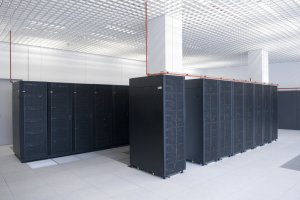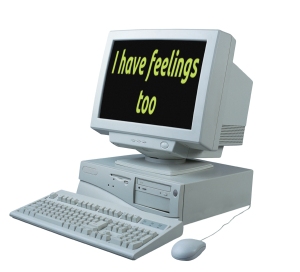The subject that is more relevant than ever – Artificial intelligence. But wishing for a thinking machine isn´t just a new desire, it´s something mankind has hoped for since the first computer. A.I is also a thing that is frequently seen in science-fiction novels, movies and such. A concept whish seems to never die out. Even I as a kid dreamed up some utopian scenario about those smart computers, and how they would help the human race progress even further. I had these visions that machines would replace humans in all professional roles. The machines would be doctors, cleaners, programmers, drivers, everything. Us humans didn´t need to work anymore and could take it easy at home instead. These robots programed and updated themselves, so we humans didn’t need to do a thing. I believed then, in the year 1999, that such future were very near, and I longed for it to happen. I am now older and wiser (I at least hope so) and I no longer see this robotic future as a utopian anymore. I instead think there is a probable risk that these machines are going to become too smart for our own good. A.I also raises ethical questions such as – Can a machine have rights? Is a machine equal to a human? There are also questions whether A.I is even possible to build or not.
The most famous human-like A.I that is being built right now is the Blue brain. The blue brain project aims to fully simulate a conscious human brain. This project is estimated to be done in the year 2023. When the brain is finished, it´s going to be an empty shell devoured of any memories and personality. The idea is that they are going to perform experiment on this brain, for example to see how our neurons react when we have depression or feel anxiety. The next step, which probable will take another 10 to 15 years to accomplish, is to make the brain learn, to create a personality to this object.
 The blue brain
The blue brain
I am not the only one which is sceptic about this project. Philosophers, like John Searl claim that it´s not possible to simulate a human brain in this way. Other people claim that there are flaws in the blue brains construction and the way it will operate. There is also the ethical aspect, as I wrote earlier – should the computer have rights? If it behaves as a human, should we treat it as a human? If not, what gives us humans special privileges? There is another important question – is it ethically correct to experiment with a “thinking” brain? Does the computer have a conscious or is it just an empty shell which simulates emotions? These are all important philosophical questions that needs to be addressed, and needs to be answered.
Some guys had the following conversations about the blue brain which flows with irony, and at the same time addresses the core-problem with this:
Person 1: I feel like there might be something unethical about creating a disembodied person to be your captive specimen for psychological research.
Person 2: What could possibly be unethical about creating a helpless human mind, trapped inside some kind of virtual limbo, which has no mouth but must scream?
Is a computer able to have a conscious? This is a important question when you determines if the robot should have rights or not. But there is also a risk that the robot will demand rights, if it´s not given to it willingly. If the robot simulates a man, then it´s also going to think and act like a man, and a man don´t tolerate being a slave forever. What if the machines do a revolution? We got few answers to these pressing issues.
Something that many talk about is the ”intelligence explosion”. The intelligence explosion is a theory which states that if you build a intelligent machine, the machine in turn will make an even smarter machine. Philosopher David Chalmers is a proponent of this idea. There are a few problems with this hypothesis. How is this intelligence explosion even happen to begin with? The most common answer is that you just add more computer power and therefore the computer gets smarter. But this isn´t necessarily true, more computer power doesn’t always correlate with intelligence. The machine is maybe getting faster at completing a task, but not necessarily better at it.
The other argument is that the computer modifies their own source code, and that way gets more intelligent. The problem with this is that we assume that intelligence is a infinite value. There is bound to be some upper limit to how intelligent something can get. What that upper limit is, we don´t know, but it can even be around 250 iq. With other words, just a little higher than the most intelligent human. There is possible that some boost in intelligence will occur, but not in the infinite, never-ending way that some propose.

